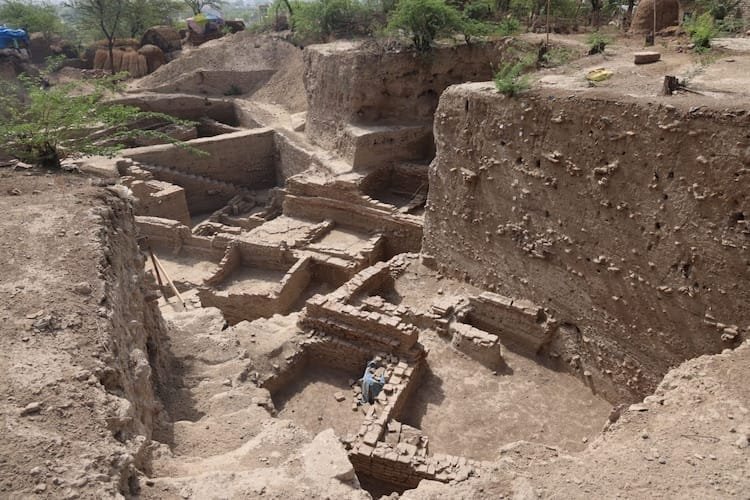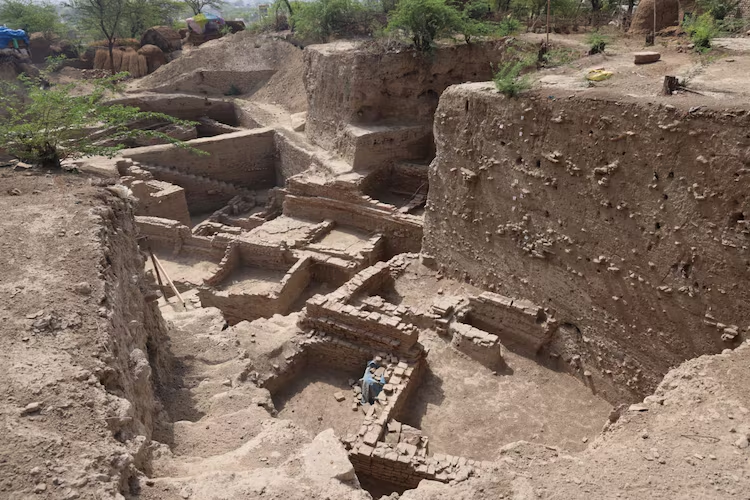Ancient Civilisation Unearthed in Bahaj Village, Rajasthan
DEEG, Rajasthan – June 27, 2025 – In a discovery that could reshape India’s early history, the Archaeological Survey of India (ASI) has unearthed significant evidence of an ancient civilisation in Bahaj village (locally Behaj) in Deeg district, Rajasthan. The find is poised to add a vital chapter to India’s archaeological and cultural narrative.
🔎 Key Discoveries
While detailed reports are pending peer-reviewed publication, ASI sources have confirmed the following key findings:
✅ Pottery shards with intricate motifs resembling pre-Harappan and early Saraswati styles, indicating a thriving settlement with artisanal traditions.
✅ Copper and terracotta tools used for agriculture and daily life, suggesting an organised community with technological capabilities.
✅ Remnants of structural foundations, including mud-brick platforms aligned systematically, hinting at urban planning.
✅ Charred grains and plant remains, providing clues to ancient agricultural practices and dietary patterns of the settlement.
—
🌍 Why This Matters
✅ The Bahaj discovery bridges crucial gaps in the timeline of early Indian civilisation, potentially aligning with the mythical Saraswati river settlements referenced in Vedic texts.
✅ It could redefine our understanding of settlement patterns in western India, revealing connections with Indus Valley and early Vedic cultures.
✅ The findings open new avenues for interdisciplinary research across archaeology, geology, and ancient agriculture studies, enriching India’s cultural heritage map.
✅ For Rajasthan, this positions Deeg as a new heritage hub, expanding the region’s significance beyond forts and palaces to deep-time civilisational insights.
—
🔮 What Comes Next?
Future excavation rounds are planned to clarify the chronology and cultural context of Bahaj:
Carbon dating and material analysis will establish precise timelines for the settlement layers.
Artefacts will be compared with those from Harappan and Saraswati-linked sites for continuity mapping.
Possible discoveries of inscriptions or seals could provide direct linguistic and cultural clues.
The Ministry of Culture is reviewing ASI’s preliminary report, with proposals to develop site museums and digital archives to preserve and showcase the findings.
There is growing excitement among historians and archaeologists about Bahaj’s potential in mapping India’s ancient heritage systematically.

—
✨ Final Takeaway
The Bahaj excavation offers a rare lens into India’s deep past, blending archaeology, mythology, and cultural continuity. From the pottery and tools to the mud-brick structures, every artefact whispers stories of ancient lives once lived in these valleys—valleys that might have once echoed with Vedic chants and community activities.
This small Rajasthan village now stands at the forefront of rewriting India’s earliest civilisational chapters.

 Add to favorites
Add to favorites








